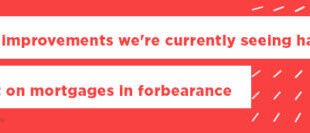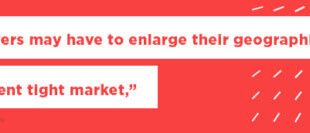
If you’re at least 62 years old and your home is paid off, or you have a lot of equity in your home, you may be able to use your convert your equity into a stream of monthly income or a line of credit.
This article takes an in-depth look at Home Equity Conversion Mortgages, the requirements, and guidelines so you can see if you’re eligible and if a HECM loan will be beneficial to you.
Speak to Lenders and Compare Loan Offers
What is a Home Equity Conversion Mortgages (HECM)?
Home Equity Conversion Mortgages (HECM), also known as a reverse mortgage, is used to convert your home’s equity into monthly income or lines of credit.
Reverse mortgages are very popular with senior citizens who want to supplement their income using their home equity.
Homeowners 62 years of age or older are eligible if they own their home outright or have a significant amount of equity in the home, so the loan balance can be paid with the HECM loan proceeds. Borrowers must receive counseling from a HUD-approved housing counseling agency.
The loan amount is dependent on the age of the youngest borrower, interest rate and closing costs, and the lesser of the appraised home value or the FHA loan limit in the county.
Apply for a HECM Loan & Check Rates
HECM Requirements
Home Equity Conversion Mortgage (HECM) is the only reverse mortgage insured by the U.S. Government and is only available through FHA-approved lenders. Borrowers 62 years of age and older may qualify if their home is paid off or have significant equity; the loan amount available varies by borrower and depends on:
Borrower Requirements
2020 HECM Requirements |
• Be 62 years of age or older |
• Own the property outright or have significant equity |
• You must occupy the property as your principal residence |
• Not be delinquent on any federal debt |
• Financial resources to continue making payments of ongoing charges such as property taxes, homeowner’s insurance, and HOA dues. |
• Participate in a consumer information session by a HUD- approved HECM counselor |
Property Requirements
Eligible properties must meet all FHA property standards and flood requirements:
2020 HECM Property Requirements |
• Single family home or 2-4 unit home with one unit occupied by the borrower |
• HUD-approved condominium project |
• Individual Condominium Units that meet FHA Single Unit Approved requirements |
• Manufactured home that meets FHA requirements |
Financial Requirements
Your Income, assets, monthly living expenses, and credit will need to be verified. |
Verification of timely payment of real estate taxes, hazard and flood insurance premiums. |
Payment Plans
For adjustable-rate mortgages, you can select one of the following payment plans:
Equal monthly payments If at least one borrower continues to occupy the property as a principal residence. | |
Equal monthly payments for a fixed time period. | |
Line of Credit | Unscheduled payments or installments until the line of credit is exhausted. |
Modified Tenure | A combination of line of credit and scheduled monthly payments for as long as you occupy the home. |
Modified Term | A combination of line of credit plus monthly payments for a fixed period of months you choose. |
For fixed-rate mortgages, you will receive the Single Disbursement Lump Sum payment plan.
Mortgage Amount Based On
• Age of the youngest borrower or eligible non-borrowing spouse |
• Current interest rate; and |
• Lesser of:appraised value; |
• The HECM FHA mortgage limit of $ 765,600; or |
• The sales price (only applicable to HECM for Purchase) |
HECM Costs
You can finance the costs of a HECM or choose to pay them upfront from the loan proceeds.
HECM loans include mortgage insurance premiums (upfront and annual), origination fees, interest, and servicing fees.
Mortgage insurance premium (MIP) is charged at closing. The initial MIP will be 2% of the loan amount. Over the life of the loan, you will be charged an annual MIP that equals 0.5% of the outstanding mortgage balance.
Mortgage Insurance Premium | Mortgage insurance guarantees you’ll receive expected loan advances. The mortgage insurance premium (MIP) can be financed as a part of your loan. |
Third Party Charges | Closing costs include surveys, title search and title insurance, property taxes, inspections, recording fees and more. |
Origination Fee | Lenders can charge the greater of $ 2,500 or 2% of the first $ 200,000 of your home’s value plus 1% of the amount over $ 200,000. The HECM origination fee has a $ 6,000 cap. |
Servicing Fee | Serving includes sending account statements, disbursing loan proceeds and ensuring property taxes and hazard insurance payments are up to date. Maximum monthly servicing fee of $ 35. Each month the servicing fee is added to your loan balance. Lenders may also choose to include the servicing fee in the mortgage interest rate. |
HECM Alternatives
Home Equity Conversion Mortgages (HECM) isn’t the only way to convert the equity in your home into cash. You can also get a loan using your home’s equity as collateral with a cash-out refinance or home equity loan.
Cash-Out Refinance | A cash-out refinance is a new loan that replaces your current loan plus provides up to 80% of your home’s value in cash. | ||
Home Equity Loan | A home equity loan is a second mortgage that uses the equity in your home as collateral for a new loan. | ||
Works like a home equity loan except instead of the funds being dispersed in a lumpsum a HELOC provides a line of credit you can borrower from as needed similar to a credit card. | |||
Frequently Asked Questions
Is HECM the same as a reverse mortgage?
Yes. A reverse mortgage is another name for a Home Equity Conversion Mortgage (HECM), which provides senior citizens with a loan or monthly payments using the equity in their home.
Can a delinquent Federal non-tax debt be paid off at closing using HECM proceeds?
Yes, you can pay off Federal non-tax debt at closing using the proceeds from the HECM.
Can a borrower in the HECM purchase program have more than one FHA-insured loan?
No., Borrowers that plan to sell their existing residence and use the HECM for Purchase program to buy a residence must pay off their existing FHA mortgage before the HECM for Purchase mortgage can be insured.
Do collection accounts have to be paid off to be eligible for a HECM?
Not unless the balances on the collection accounts are over $ 2,000, in which case payment arrangements will need to be made. If there is no payment plan, the monthly payment will be calculated using 5% of the outstanding balance with each creditor, a d included in the expense analysis.



